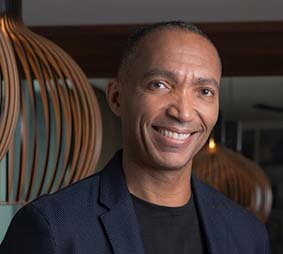Us2.ai is a fast-growing start-up, based in Singapore but now operating worldwide, which is dedicated to tackling CVD and heart disease through pioneering Artificial Intelligence (AI). Its mission is to improve patient outcomes and expand healthcare access by making echocardiograms, the most used tool for the detection of heart risk, available to all. We spoke to CEO James Hare to find out more.
Tell us a little bit about your innovation: the what and the why?
Cardiovascular disease is the number one killer worldwide and is the cause of 1 in 3 deaths – but we don’t think it has to be that way. We want everyone to have equal access to high quality, inexpensive echo analysis.
Echocardiography (echo) is currently considered one of the safest, most reliable, and cost-effective ways to diagnose CVD but there are delays and challenges to access it, and it relies on humans to manually carry it out and analyse the results.
Our ground-breaking technology is an automated clinical decision support workflow solution that can facilitate the diagnosis, detection and prognosis of heart disease and pulmonary hypertension. It recognises and analyses 2D and doppler echo images faster and with accuracy comparable to top human experts, yet with less variability.
Us2.ai integrates with any image capture hardware and processes a complete echo report in less than two minutes, only requiring the equipment operator to acquire the images.
What was the light bulb moment?
My light bulb moment was when, at a top rate hospital, I received two very different cardiac echo reports from two different highly trained specialists. When I tried to understand why, I learned that they were both using a labor intensive process they actually hated, and that neither could remember a specific footnote (among dozens) on page 12 (among more dozens) of the international guidelines that would have helped understand my particular case. That’s when I knew there must be a better way, and that AI could help.
Which health innovation networks have you been supported by?
We’re just at the start of our journey and look forward to seeing where working with the Health Innovation Network takes us.
What are your hopes for the future?
We’re building a future where everyone, from the most advanced tech-driven regions to the most resource constrained communities, can have equal access to high quality, consistent and inexpensive echo analysis.
What’s been your toughest obstacle to date?
Refusing to compromise. Startups are faced with so many endless challenges that it’s easy to give in and lower one’s ambitions in order to just get through the day. I’ve lost track of the number of times someone has said this or that is too difficult, or even impossible to do; and yet somehow, through sheer obstinacy and refusal to accept no, we just figure it out. In these cases, the solution inevitably seems trivial after the fact, and even though every instinct at the time is screaming to avoid the pain and accept defeat.
What’s the best part of your job?
Creating. We live in an age of miracles where an idea hatched in a living room on one side of the world can help improve thousands of lives on the other. The ability for a small team to create innovative software that is not only the best in the world, but can also help in the fight against humanity’s number one killer, still gives me goosebumps.
Three pieces of advice for budding innovators?
- Focus – say no to the hundreds of distractions and tempting diversions that in the end will be meaningless to your success, in order to be all in on the few activities that actually will move the needle for you.
- Learn – we are living in a time of miracles when the best and the brightest in the world, in any field you can think of, are eager to share their experiences online for free. Take advantage of this.
- Endure – in so many cases, I’ve seen that success is a matter of being the last man standing. Prepare yourself and your company to survive and be default alive, no matter what the external market circumstances are.

Grace Gimson is the founder and CEO of Holly Health, a digital platform dedicated to transforming healthcare through preventive and person-centered digital health coaching. The platform aims to support individuals struggling with mental or physical health. Grace is a generalist with a background in operations, business leadership, and scaling tech startups such as Deliveroo. [...]

HN (Health Navigator) is an AI-powered health innovation that enables preventative care through predictive analytics. Founded in Sweden by Dr Joachim Werr, a former A&E consultant, HN is now supporting healthcare systems across the UK to identify high-risk patients before they reach crisis point. Joachim shares the journey behind HN and the transformative impact of [...]

The government has set out three shifts it wants to see happen: treatment to prevention, hospital to community, analogue to digital. HealthTech has a crucial role in supporting the delivery of all three. But using technology to help deliver these changes requires procuring the technology, and when all the noise is about there being no [...]









